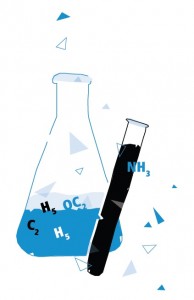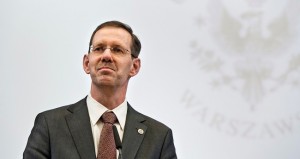
For young scientists: interview with professor Marcin Pałys, the Rector of the University of Warsaw, about how he became a chemist.
Did you ever receive the Kid’s First Chemistry Set?
Actually, it was the “Professional Chemistry Set” from the very beginning. My grandmother was a chemistry teacher. At her house there were always many mysterious items, curious substances in various containers which drew my attention. So my interest in chemistry started very early.
What is so interesting in this field?
First and foremost, the experimental character of it. Chemists try to learn the properties of substances or their behaviours. Waiting for the results is very exciting. In chemistry you gain knowledge mainly through your own activities and experiments that involve you personally.
So one could learn chemistry without burying oneself in books?
Not quite. Good knowledge of published works saves us from making experiments which were already done. In chemistry, part of the knowledge are facts to memorize, but the rest is relations and models, and this knowledge is gained by solving tasks and problems.
It seems that the most interesting part are experiments, after all. Do you remember your first experiments?
While still in the primary school, at home, I decided to produce a copper alloy myself. Unfortunately, the experiment resulted in the enamel peeling off our cooker, and I had a minor falling out with my parents. In the secondary school me and my two colleagues, we literally took over the chemical lab. The place was really well equipped for those times. It smoked, it flashed, it burned, it changed colours, it emitted various odours. Once we had an argument with a teacher who came to teach the next lesson in the room in which we conducted our experiments. Unfortunately, the smell prevented her from doing so.
I understand that it was not quite the aroma of musk and lotus flower?
I think it must have been ammonia. Thankfully there were no repercussions – teachers were very understanding towards our attempts and encouraged us to experiment further.
And they, did they always succeed?
Not everyone has a knack for it. I remember well one experiment from the physics lesson. Into a mercury barometer one had to inject a bit of diethyl ether, which evaporated, causing a drop in pressure and lowering the level of mercury. We had a physics teacher who generally failed at experiments. The attempt to perform this one took her the whole lesson. But she did it!
Being a Rector now, do you still have time to conduct experiments?
I teach laboratory classes on inorganic chemistry. In the lab, we carry out doping, i.e. we introduce small amounts of atoms and ions to crystals. These minuscule additions drastically change crystal properties – for example insulators are turned into semiconductors.
Interview from a special magazine issued by University of Warsaw for 26th Finals of The European Union Contests for Young Scientists, organized by the European Commission, “Welcome 2 UW”.Read all



